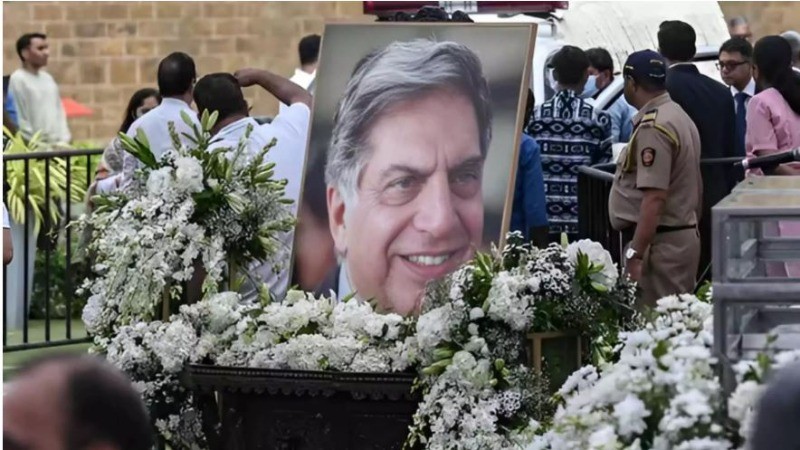
Ratan Tata, the 86-year-old Chairman Emeritus of the Tata Group, passed away on Wednesday at Mumbai's Breach Candy Hospital. The Maharashtra government will hold a state funeral to honor his legacy, and, as a Parsi, his last rites will follow the traditions of his community.
Parsis do not cremate or bury their dead, viewing the human body as a natural gift that should be returned to nature. According to Zoroastrian beliefs, cremation or burial would pollute the natural elements of water, air, and fire.
READ MORE:
In the early morning, the body will be prepared for the funeral. Nassesalars, specialized pallbearers, wash and dress the deceased in traditional Parsi attire. The body is then wrapped in a white shroud, which includes a ‘sudreh’ (a cotton vest) and ‘kusti,’ a sacred cord worn around the waist.
Before the final journey, Parsi priests will perform prayers and blessings to help the deceased’s soul transition to the afterlife. Family members and close relatives will gather to honor the deceased and participate in these prayers.
Traditionally, the body is taken to the Tower of Silence, known as ‘Dakhma,’ specifically designed for Parsi funerals. There, the body is laid out for exposure to the elements and scavenger birds, primarily vultures.
READ MORE:
This practice, called ‘Dokhmenashini,’ ensures the body returns to nature without polluting fire, earth, or water. Vultures consume the flesh, and the remaining bones eventually fall into a central well in the tower, where they decompose further.
Modern Adaptations: Electric Cremation
In light of environmental concerns and the declining population of vultures, modern adaptations may be included in the funeral process. In urban areas, solar concentrators can be used to speed up decomposition.
Additionally, some Parsi families are opting for electric cremation as a more practical and eco-friendly choice. If the ‘Dakhma’ method is not feasible, the body will be taken to an electric crematorium, ensuring that Zoroastrian principles about contamination of earth, fire, and water are respected.
READ MORE:
Ratan Tata's Impact on the Parsi Community
Ratan Tata was a significant figure in the business world and a prominent member of the Parsi community. The Parsis, followers of Zoroastrianism, are one of India’s smallest yet most influential religious minorities, and Tata's contributions to this community have been widely acknowledged. Several key Parsi publications shared their condolences, highlighting his generous contributions.
A post on the Zororoots Instagram account noted, “Ratan Tata has been a committed supporter of the Zoroastrian Return to Roots Program and has graciously met with us on several occasions. He serves as an excellent role model for young Zarathushtis, embodying humility and philanthropy.”
READ MORE:
State Funeral Details
The Maharashtra government has announced that Ratan Tata will receive a state funeral, recognizing his immense contributions to the nation.
His body is currently at the National Centre for Performing Arts (NCPA) in Nariman Point, South Mumbai, allowing the public to pay their respects before the final rites. At 3:30 PM, his body will be transported to the Worli crematorium for the last rites. Union Home Minister Amit Shah will represent the government at the funeral.
READ MORE: